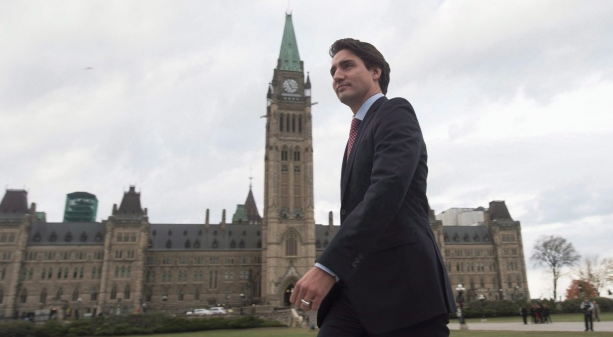Joanne’s article from Friday’s Globe and Mail:
Will a former camp counsellor make a good Prime Minister? You bet
Dear Justin,
I’m guessing that as you face the biggest challenge of your life, you’re thinking back on similar mountains you’ve scaled. Let’s face it, your resume is meagre. But your time as a camp counsellor comes to mind and may be instructive.
The first lesson you had to learn as a counsellor was to listen more than you talked. Listening is a hard skill for most people; you have a demonstrated gift for it. No doubt you found out early in your camp career that kids don’t listen to you unless you listen intently to them first. You learned that kids have an acute sense of when they’re being patronized or their interests and needs are ignored. The counsellors who treat them that way can’t get them to do important stuff like cabin cleanup or participate in activities. Kids become fractious and rebellious when grownups don’t listen to them. Same deal with the citizenry. We booted Harper for that.
You weren’t the only counsellor in the cabin. At a tender age you were forced to learn to collaborate with the other guy. It’s harder than flying solo because for sure you didn’t always agree or mesh your styles.
The perennial camp problem is the counselling team of the by-the-book guy and the funster – two radically opposing leadership styles. Or the unhappy counselling combo of one person doing the heavy lifting while the other slacks off. No doubt this taught you to collaborate with people you dislike or disagree with, and to compromise. Not your principles but your methods.
You had to figure out that in order to meet the overarching goal – the well-being of those you led – it was necessary to work with others, rather than against them. At camp we say there is no “I” in team, that every goal you set will be better met if people pull together. Like your father paddling before you, you practiced pulling together in harmony in a canoe. This will stand you in good stead in your new job.
There’s no way eight or 10 kids in a cabin always get along. It is in fact guaranteed that a group of small boys will fight with both words and actions. There must have been aggression. The boys did not likely come to camp with strong problem-solving skills. It fell to you to bring them together. This was not simple.
A wise mediator with a group of warring campers does not rule, but rather facilitates their conversation with each other, helps each child truly hear the other’s point of view and thereby gains empathy for the other’s perspective. This newfound empathy generally produces more peaceful relations. I hope you didn’t forget this mediation skill. You’ll need it when you try to balance competing interests.
Exclusion is one of the hardest challenges every camp counsellor faces. There’s at least one of those kids in every cabin. They are the kids who are either different (by virtue of race or religion or culture or colour) or vulnerable (poor social skills or impulsivity or incompetence at skills that the other kids value).
No doubt you learned that a healthy group embraces diversity. Camp is not just for the strong. Or the white kids. Or the cool kids. You learned at camp that a cabin group became an unsafe place for everyone if it was unsafe for anyone. You learned that pecking orders sucked. Same deal for grown-ups. So don’t merely accept diversity in the big camp cabin called Canada. Foster it.
Finally and most important is your moral compass. As a camp counsellor you (and especially you!) wanted your campers to like you. At camp we are all prey to this. We call it regressive pull, the desire to break rules for your campers so they’ll think you’re cool and like you. Often at camp it’s hard to resist leading by popularity contest. So it will be for you in your new job.
Please remember what you learned at camp – to do the right thing because it’s the right thing, even when it’s the unpopular choice.
Kids become fractious and rebellious when grownups don’t listen to them. Same deal with the citizenry.


Leave a Reply
You must be logged in to post a comment.